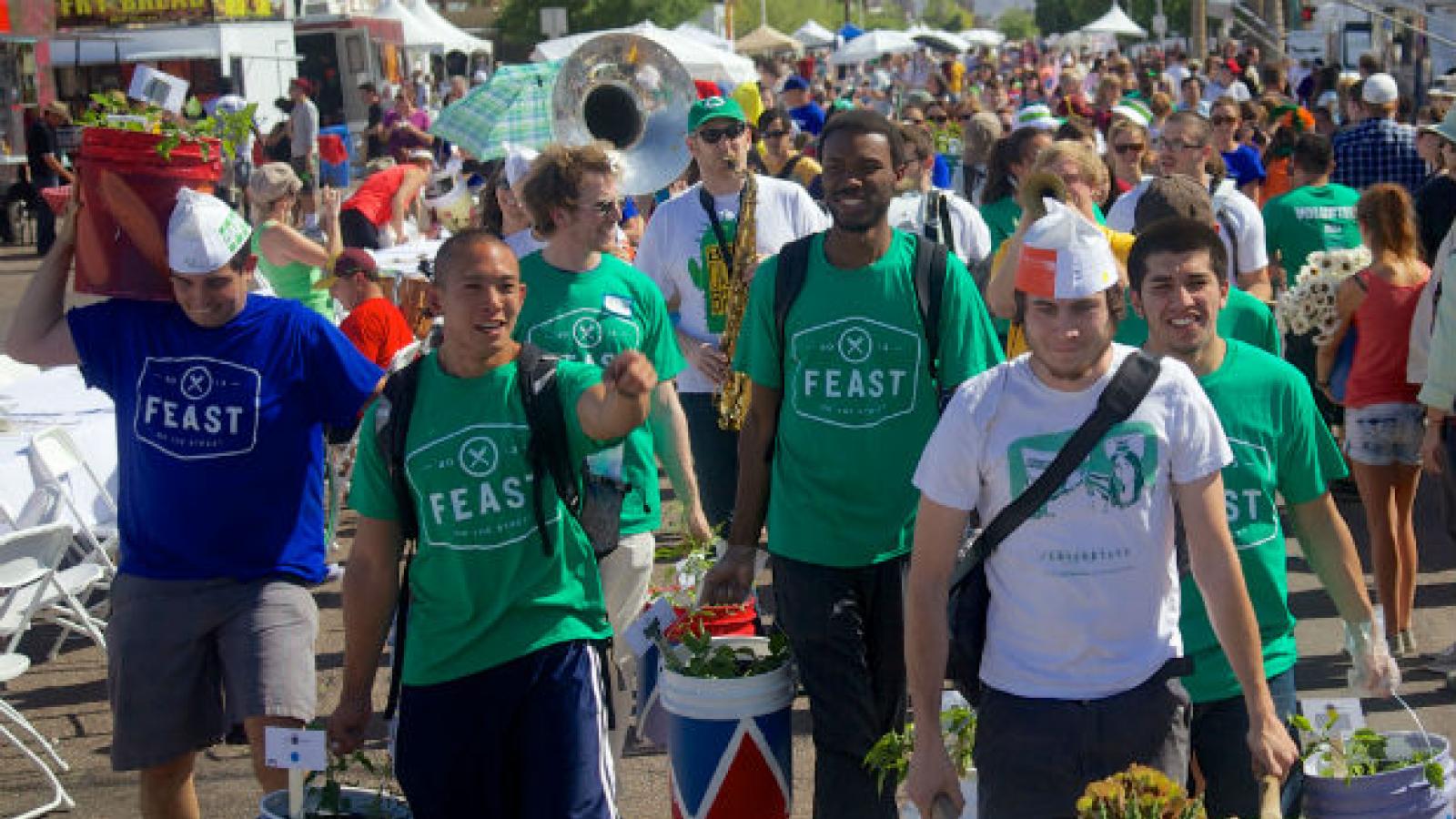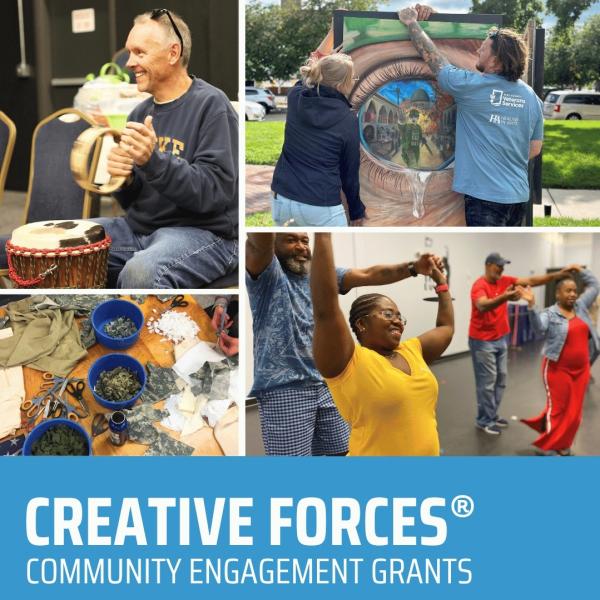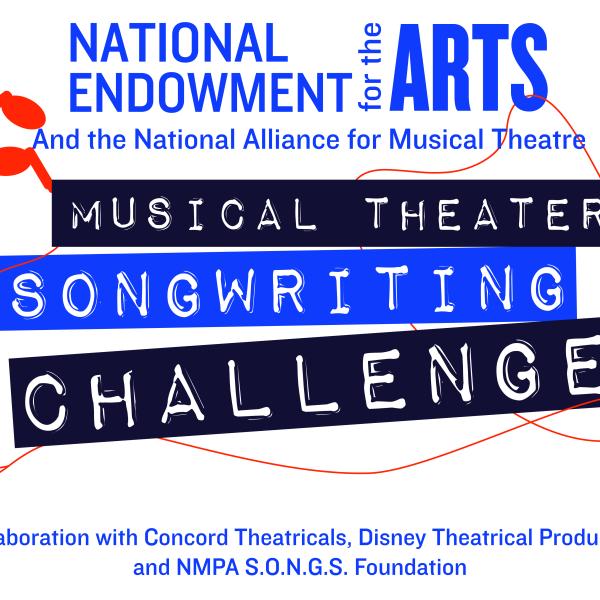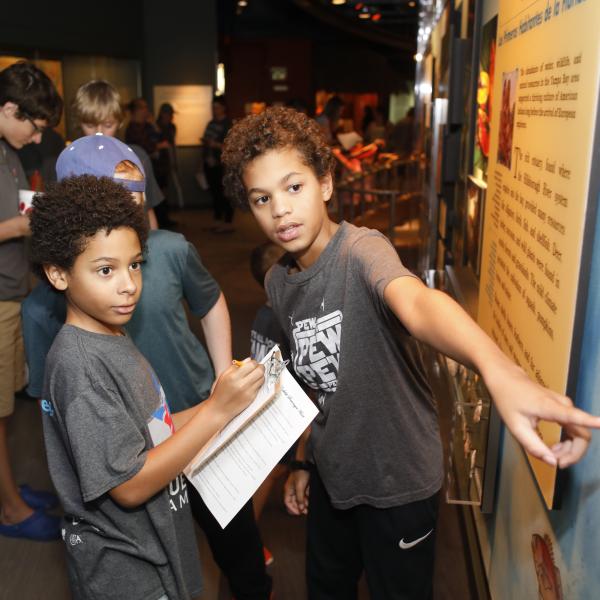Washington, DC—The National Endowment for the Arts is launching new resources to assist practitioners who are working on arts-based community development projects. These resources will assist those practitioners to develop projects that are authentic, equitable, and that augment existing local assets.
Those resources are:
"The Our Town program is a prime example of the power the arts have on our everyday lives," said NEA Chairman Jane Chu. "The arts can connect us, they can weave communities together, and they can infuse our lives with a deeper sense of place and purpose. The arts have the power to change where we live, and who we are, for the better. To that end, the resources we are making available today will provide the essential tools to those interested in undertaking the important work of creative placemaking and community development around an arts-based project."
Exploring Our Town
Exploring Our Town responds to requests from the arts community for ready access to an easy-to-search resource on best practices in community development and creative placemaking. The resource is divided into two sections, Project Showcase and Project Insights. Project Showcase features case studies of more than 60 Our Town projects organized by project setting, project type, and by state. The Project Insights section, divided by Project Process, Project Setting, and Project Type, includes lessons learned, relevant case studies, and additional resources.
The NEA applauds the work of the project team which includes direction under
GO collaborative, design by
Hyperakt, website development by
Entermedia, writing by
John Gendall, and project research by GO collaborative and
Alex Appelbaum.
2015 Our Town Guidelines and Webinars
New Our Town guidelines are available to support creative placemaking projects that contribute towards the livability of communities and help transform them into lively, beautiful, and resilient places with the arts at their core. As in the past four years, Our Town grants will support arts engagement, cultural planning, and design projects. New in 2015, the NEA is offering funding for up to five projects to fund membership organizations to build out technical assistance to those doing arts-based community development work.
There will be two how-to-apply-to-Our Town webinars, hosted by the NEA's Director of Design Programs, Jason Schupbach.
- October 1, 2014 at 3:00PM EST will cover arts engagement, cultural planning, and design projects
- October 6, 2014 at 3:00PM EST will cover the new knowledge building project type
National Convening
On November 3, 2014 the NEA, with support from
ArtPlace America, will host a gathering on the role of the performing arts in transforming places, people's relationships with their communities, and community development processes.
Called
Beyond the Building: Performing Art Organizations and Transforming Place, the purpose of the convening is to develop a better understanding of how performance-based organizations, and the artists they engage, transform places through their artistic practices. The focus will be on operational and artistic strategies, rather than the creation of new performing arts facilities or public spaces. It will bring together a range of performing arts practitioners and supporters, creating an opportunity to connect and exchange key points of view that will benefit individual and collective work.
More information will be available in early October.
Additional Resources
-
NEA researchers have developed a series of indicators measuring four broad dimensions of livability (“Resident Attachment to Community,” “Quality of Life,” “Arts and Cultural Activity,” and “Economic Conditions”). These indicators are publicly available via national datasets. To review a list of the indicators and their utility for creative placemaking projects, see “The Validating Arts & Livability Indicators (VALI) Study: Results and Recommendations”
-
Also of note, the Mayors' Institute on City Design has relaunched its website, providing an easy to navigate resource with informative success stories of city development issues from the Institute’s history. It allows the public to track the Institute’s progress, and gives insight into how mayors think and talk about city design.
The Mayors’ Institute on City Design is a leadership initiative of the National Endowment for the Arts in partnership with the American Architectural Foundation and the United States Conference of Mayors with major support from United Technologies Corporation. Since 1986, the Mayors’ Institute has helped transform communities through design by preparing mayors to be the chief urban designers of their cities. To date over a 1,000 mayors have attended the Institute over its 28-year history with support from United Technologies Corporation.
About the National Endowment for the Arts
The
National Endowment for the Arts was established by Congress in 1965 as an independent agency of the federal government. To date, the NEA has awarded more than $5 billion to support artistic excellence, creativity, and innovation for the benefit of individuals and communities. The NEA extends its work through partnerships with state arts agencies, local leaders, other federal agencies, and the philanthropic sector. To join the discussion on how art works, visit the NEA at
arts.gov.





